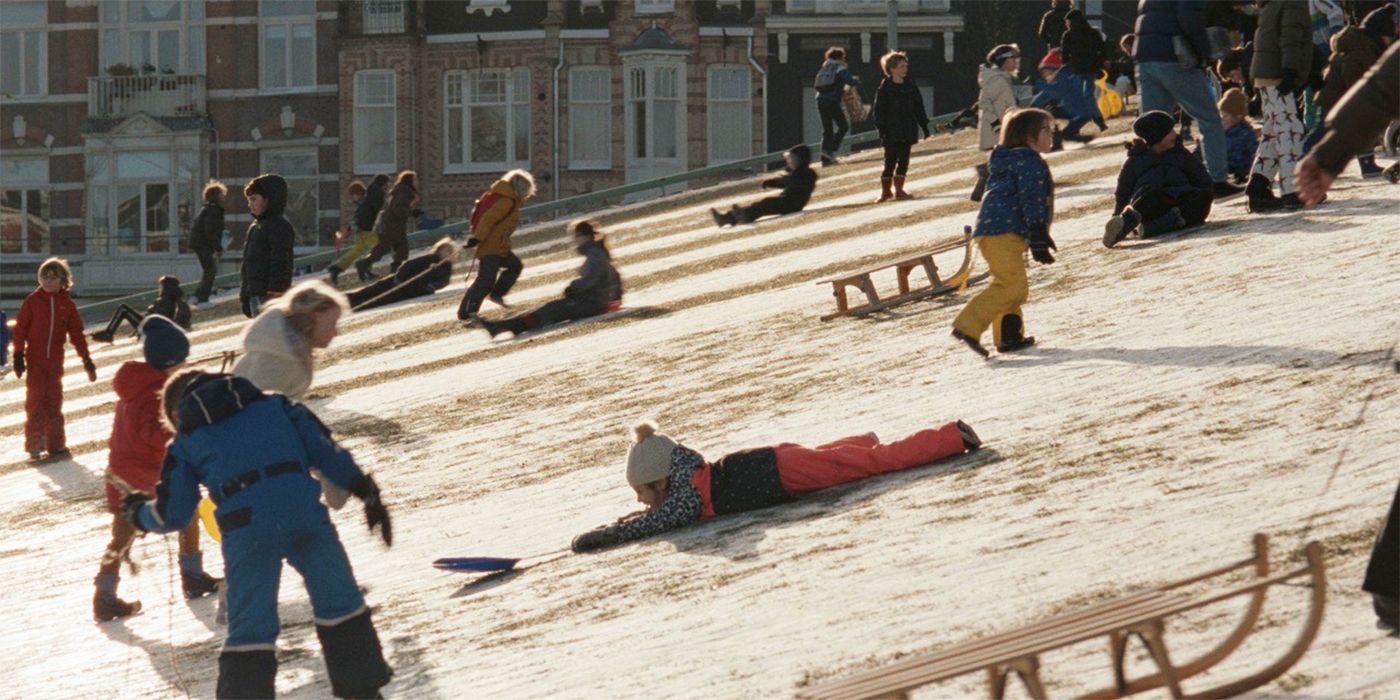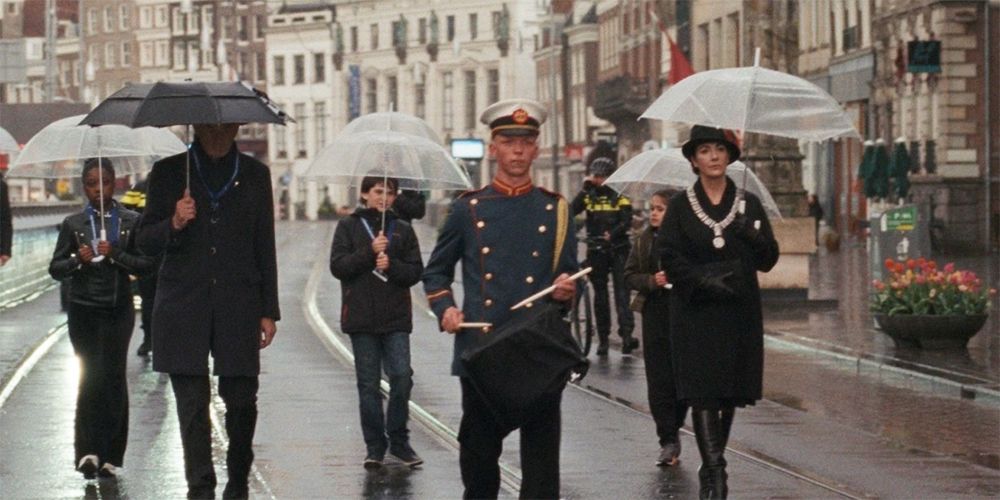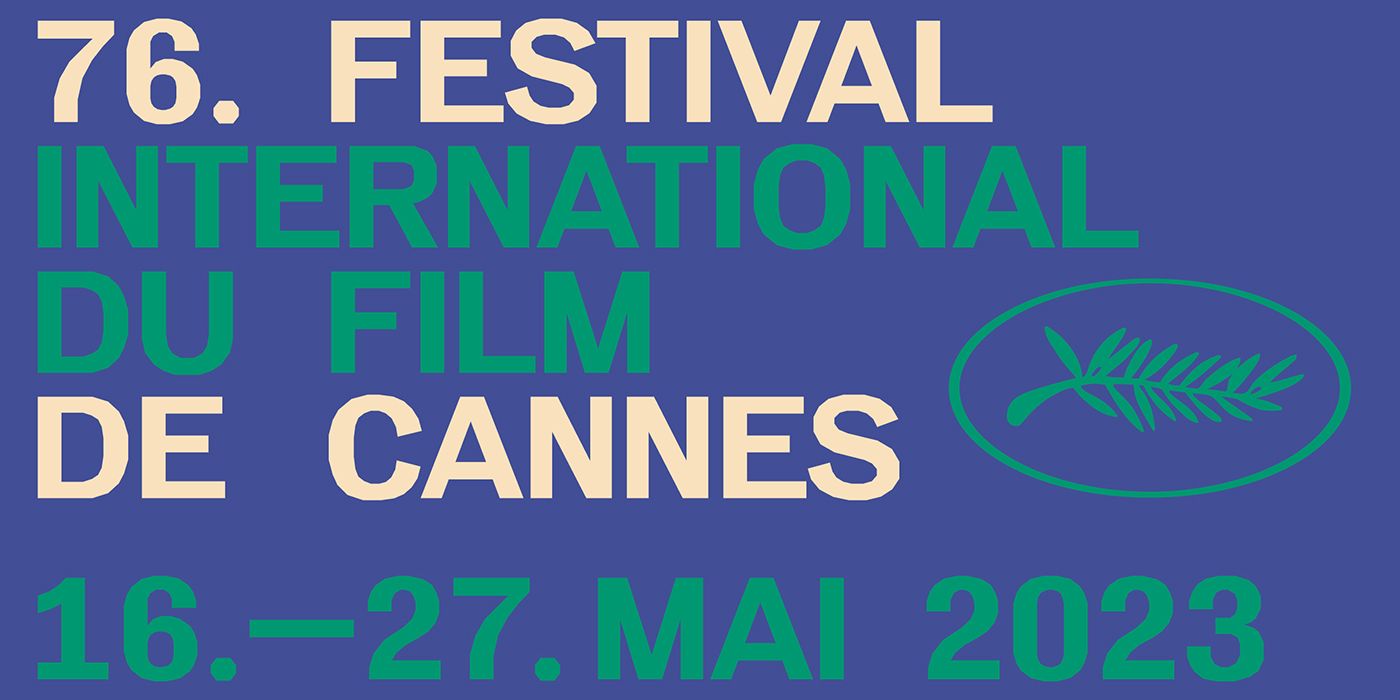What do a crowd protesting COVID lockdown, climate change, ice skating on a canal, and Nazi-occupied Amsterdam have in common? Not much, but to Steve McQueen they string together a story with Occupied City. The documentary was directed and produced by the 12 Years a Slave director and is based on his wife Bianca Stigter's illustrated history book, Atlas of an Occupied City, Amsterdam 1940-1945. The film clocks in at a staggering 262 minutes with a 15-minute intermission in the middle. But does McQueen justify the four-and-a-half-hour runtime?
It's a complicated question with a complicated answer. Occupied City meticulously and unrelentingly documents the comings and goings of modern Amsterdam life while overlaying the footage with Melanie Hyams narrating and telling story after story of people living in occupied Amsterdam during World War II. The large majority of stories are about the Dutch Jews who were the targets of the Nazi regime. So, yes, Occupied City deserves a long runtime that lets it breathe and makes time for each of these personal stories. But to say that absolutely nothing could be cut from the documentary to make it a bit more svelte is an exaggeration.
Steve McQueen Sends Confusing Messages in 'Occupied City'
McQueen lives in Amsterdam, and there's an overwhelming amount of footage in Occupied City that truly captures the spirit of the city. It's clear that he loves this city and revels in both its unbreakable spirit and quiet slice-of-life vignettes. Occupied City is insanely meditative, and it's not hard to feel yourself getting swept away by the sheer amount of tragedy as each story is revealed through the narration.
That Hyams' dry narration seems to deliver only the facts makes the impact of the stories that much stronger. There's no swelling music, no emotional manipulation, just the bare-bones facts are enough to leave you feeling wrecked by the devastation left by the insidious Nazi regime. Yet, even as Occupied City highlights the stories of forgotten Jews murdered during the Third Reich, there's something irreverent in the way their stories are presented alongside modern Amsterdam footage.
Overlaying the stories of Jews being sent to concentration camps and extermination camps on top of footage of citizens protesting COVID lockdown or celebrations during COVID that inevitably will lead to superspreader events conveys a confusing message. Are we equating the suffering of Jews to the government trying to protect its citizens from a highly infectious and deadly virus during a time when we had no vaccine?
McQueen Tries to Tackle Too Many Issues in 'Occupied City'
Unfortunately, the weakest aspect of Occupied City is the sum of its parts. The sort of lackadaisical filming style of modern Amsterdam is charming and mesmerizing at times, even if you have to sit through an empty tram ride that takes about four full minutes. It's artistic. And the narration and stories being told with each account is impactful. If you feel like the sheer number of stories is overwhelming in the documentary, this is just a drop in the bucket.
The problem comes when McQueen tries to braid these two things together, peppering in other issues like climate change, modern political rallies, systemic racism, and medical misinformation. If you look closely, there is a connecting thread, but that thread is weak and made weaker by how shallow the documentary is at times. I couldn't help but wonder how a victim of the Holocaust, or one of their family members, would feel hearing their family's story told while watching a man on a bike in Amsterdam crash into someone on the street, or while a group of guys film a hip hop music video?
Four and a Half Hours and Still No Real Point
Occupied City starts off strong, but after the intermission, you can feel how aimless the documentary is at times, with the final act feeling almost excruciatingly long. It takes a meandering pace with no clear thesis. It's indulgent and while McQueen might be happy to show as much of the footage that he shot as possible, it sometimes feels like he's simply using the stories of World War II as a vehicle for his art.
That's obviously not his intention, but with such an overwhelming number of stories, I wonder if it would have been better to focus on a smaller number of stories and go into more detail? The fact that some stories only get a couple of sentences does little justice to the families that were torn apart or murdered by the Nazis. In the end, there's not enough to dig into with Occupied City. Yes, Amsterdam was occupied by the Nazis during World War II, but so were many cities and countries in Europe during that time. And yes, that history is written onto the bones of that city. But Occupied City doesn't go beyond stating that obvious point and robs the documentary of its full potential.
Rating: C+
Occupied City had its world premiere at the 2023 Cannes Film Festival.



